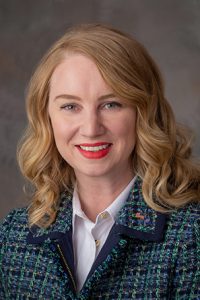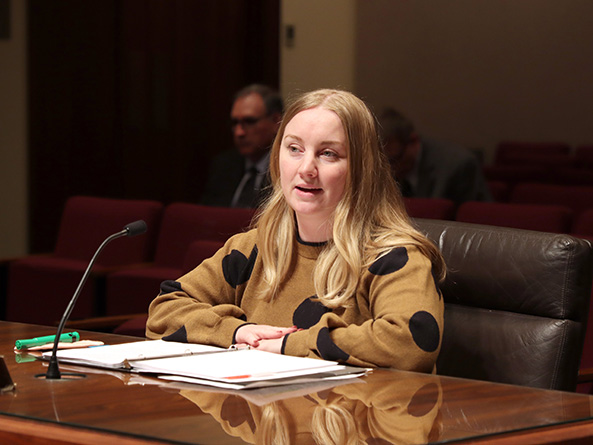Bill would expand authorized abortion practitioners
More medical professionals would be authorized to perform abortions in Nebraska under a bill considered Feb. 24 by the Health and Human Services Committee.

Currently, only physicians are classified as qualified practitioners authorized to perform abortions in the state. LB716, sponsored by Omaha Sen. Megan Hunt, would add advanced practice registered nurses, certified nurse midwives and physician assistants as qualified practitioners.
Hunt said one-third of states in the U.S. allow these practitioners to provide abortion care and the American Public Health Association and American College of Obstetricians and Gynecologists recommend that all appropriately trained health professionals in those categories be allowed to provide abortion services.
“In one … peer-reviewed, six-year study, the complication rate was low and it did not differ between physicians and these non-physician, advanced practice providers,” she said.
Claire Wiebe of Planned Parenthood North Central States in Nebraska testified in support of LB716. Calling the bill a “step in the right direction” to ensuring access to health care, Wiebe said many Nebraska women must travel hours to seek abortion care.
Such travel often requires time off from work, travel expenses and child care, she said.
Representing the ACLU of Nebraska, Danielle Conrad also testified in favor of the bill. She said that over 90 percent of abortions in Nebraska are provided through medication, making physician-only laws “relics of time gone by.”
“LB716 rightly removes unnecessary restrictions that are not grounded in science — that are not grounded in medicine — and [would] help more Nebraskans who are in need of abortion care to access it … in a more timely manner,” Conrad said.
Gary Anthone, director of public health at the state Department of Health and Human Services, testified in opposition to the bill. Any expansion of a health care practitioner’s scope of practice in Nebraska should go through the state’s established credentialing review process, he said.
“There are no such credentialing reviews completed or pending at this time for any of these licensed health care providers,” Anthone said.
Dave Watts, president of the Nebraska Medical Association, agreed. Also testifying in opposition, he said the credentialing review process is essential for patient safety even if the likelihood of complications is rare.
“It’s especially concerning given unexpected complications that can arise suddenly with any procedure and may need immediate specialized medical attention,” Watts said.
The committee took no immediate action on LB716.


